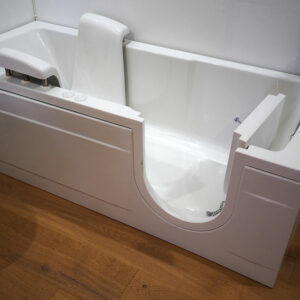8 common mistakes to avoid when buying a wheelchair

Wheelchairs are essential devices that help people with limited mobility move about independently and freely. They come in various sizes and types, each serving a unique purpose. Since a wheelchair will be one of the most significant purchases for the one using it, it is crucial to spend time researching the options available. Here are eight common mistakes to avoid when buying a wheelchair that can prove costly in the long run.
Not evaluating portability
A wheelchair must be portable. When the user wants to move or transport it, they should be able to do so quickly. Portability is handy even if the individual does not need to carry the chair when traveling. Those looking for portability should buy a wheelchair that can collapse or fold. Weight also plays a significant role, as lighter wheelchairs are easier to lift and maneuver. When purchasing a portable wheelchair, one can also get a foldable ramp or attachment to help the chair climb into or out of vehicles.
Not checking the features
While choosing a wheelchair, one must consider numerous aspects, like the type, seating, comfort level, material, and whether it is a manual or battery-operated model. Further, one must consider whether they need a lightweight, portable mobility scooter or a heavy-duty power wheelchair. Not checking all these features can cause the individual to buy something that does not meet their needs and even pay restocking fees to return it. The individual must study the wheelchair thoroughly to avoid disappointment.
Buying a used scooter or wheelchair
Sometimes, one may buy a used mobility scooter or wheelchair from a garage sale. While this can be a financially reasonable decision, the individual cannot be sure about the chair’s performance. After some time, people may find issues with used equipment, like non-working batteries, problems with the lights, or worn-out parts. In other words, second-hand devices are a gamble and may not meet expectations. To avoid trouble, one should get a new chair from an authorized salesperson or local dealer as far as possible. New models have warranties, which can help the individual save on repairs if the product turns out defective or stops working soon. Unfortunately, all these perks are absent from garage sale purchases. Although one may have to shell out more for a durable, high-quality wheelchair and ramp, it is a good decision. If someone still wants a used option, they should evaluate its condition thoroughly before purchasing.
Ignoring weight capacity
The wheelchair must be sturdy enough to support the user. Usually, the product’s description should mention its weight-carrying capacity. Even if it does not, the individual should inquire about the same at the store. One should factor in not just the user’s weight but also the add-on accessories, if any. Ignoring this aspect can cause structural damage to the chair and compromise safety.
Getting a wheelchair from another country
While one may find cheaper wheelchairs while visiting another country or browsing a foreign company’s website, they would have to pay import and shipping expenses while getting these. Buying from another country can also complicate the warranty policy, especially if specific machines or parts are unavailable in one’s local area or home country. Mobility scooters or electric wheelchairs may need unique repairs, and finding replacement parts or suitable repair companies can be challenging.
Failing to factor in the cost of wheelchair accessories
Wheelchairs often come with different accessories, like frog legs that absorb shocks, wheelchair lifts, kneeboards, brake extensions, phone holders, back support, handle extensions, and extra cushions. Users may have to factor in the cost of these while budgeting for a wheelchair. Many insurance companies cover these accessories, so one should refer to their policies or contact their insurance company for more information.
Not knowing the regulations related to wheelchair ramps
If an individual decides to get a wheelchair ramp, they should learn about the regulations related to them. Depending on where the user wants to install the ramp, they must choose a specific width, surface structure, material, or depth. Failing to adhere to these accessibility standards can cause legal issues.
Ignoring professional help
To pick the right option, one should consult a healthcare professional before buying a mobility chair. Talking to an authorized salesperson is also critical to learn about the features, limitations, durability, and any warranties regarding the wheelchair. Seeking professional help when making such an important decision is wise.



